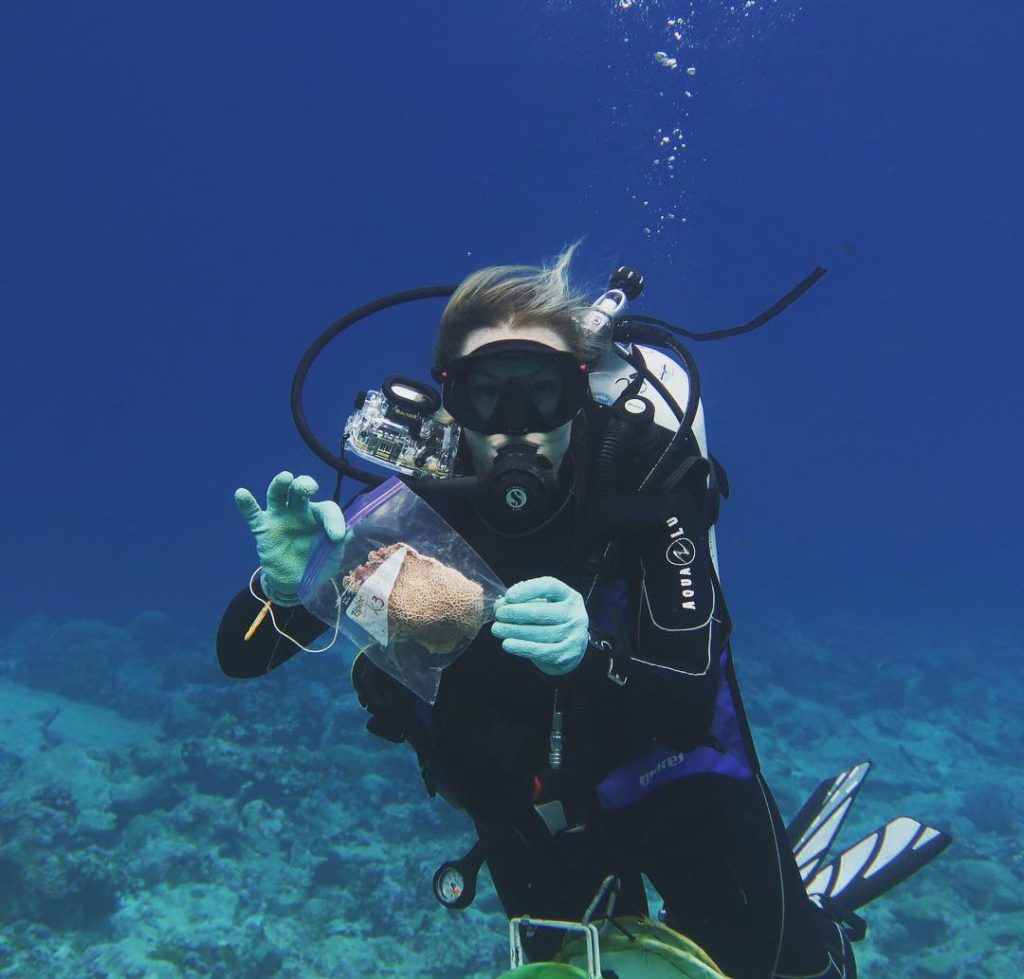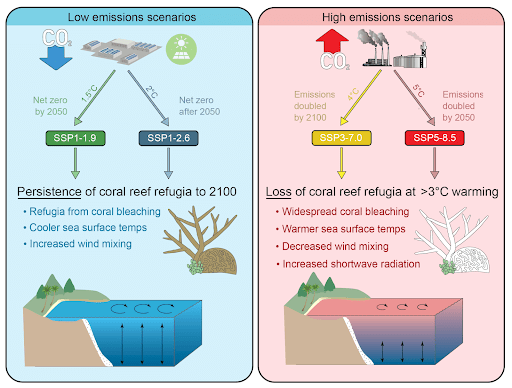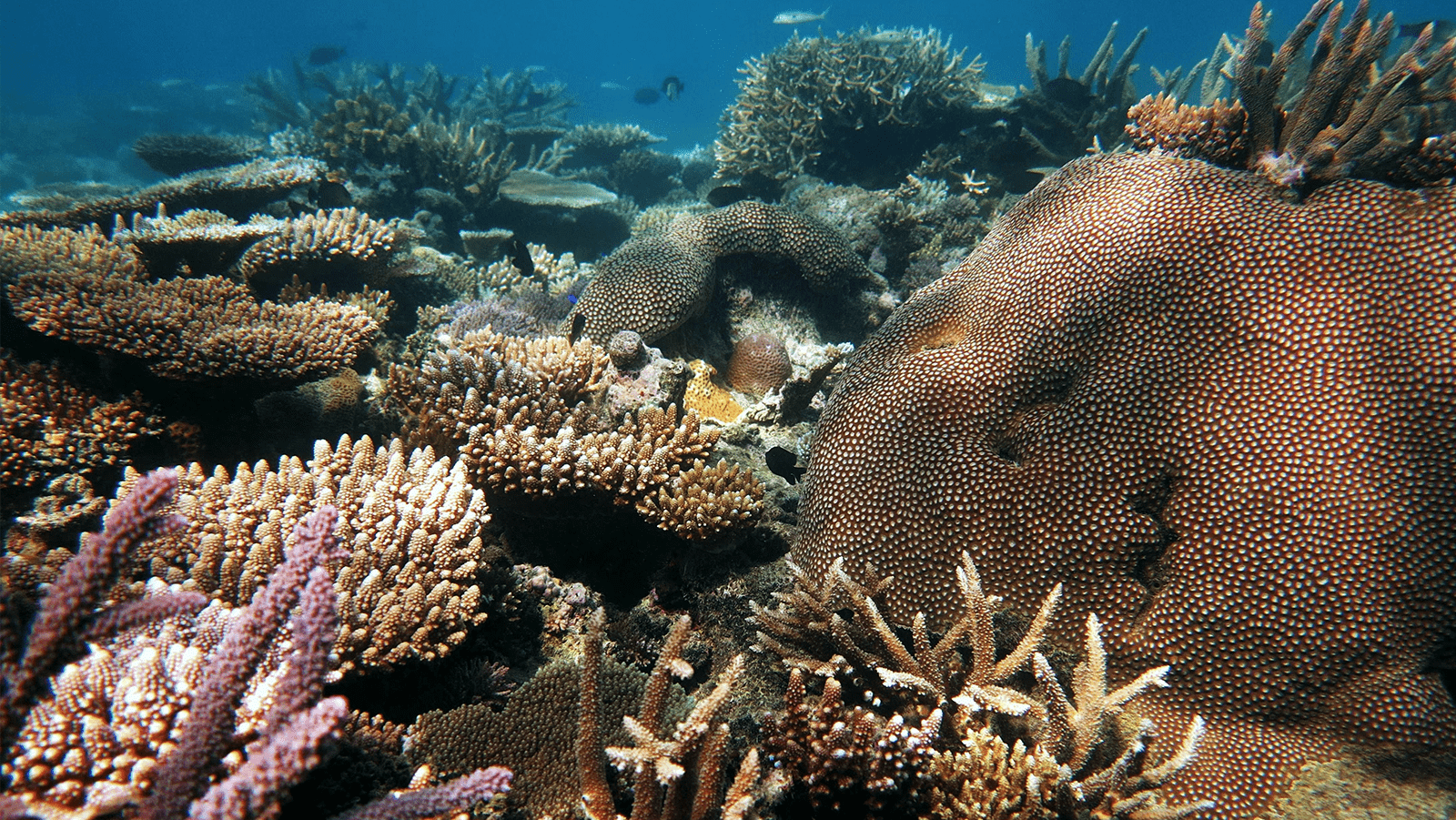AOML welcomes Jennifer McWhorter, PhD.
Jennifer McWhorter, PhD, started at NOAA AOML in April 2022 as an Oceanographer with the Ocean Chemistry and Ecosystems Division. Jennifer’s research spans climate science, physical oceanography, and coral reef ecology to better understand climate threats to reef ecosystems. She is now researching the influence of open ocean processes on mesophotic coral reefs using the biogeochemical Argo array in the Gulf of Mexico.

Image Credit: Ines Lange
Today, a new paper by McWhorter et al entitled Climate refugia on the Great Barrier Reef fail when global warming exceeds 3°C was published in the journal Global Change Biology. This paper focuses on climate refugia on the Great Barrier Reef (GBR) and its persistence into the future. Jennifer and colleagues found that GBR sites experiencing the least thermal stress over the last 20 years have done so because of unique oceanographic circumstances. For example, the mixing of tidal and wind energy provides relief from warming. However, this advantage only persists until global warming exceeds ~3°C. This implies that longer-term persistence of climate refugia at the GBR is in fact feasible under lower carbon emissions.

This paper is a result of her research on the GBR for her doctoral degree, which she recently received from the Universities of Exeter and Queensland. During her PhD work, Jennifer focused on the development and implementation of a downscaling method to improve climate projections that accounts for tidal and wind interactions with local bathymetry.

Reference:
McWhorter, J.K., P. R. Halloran, G. Roff, W.J. Skirving, P. J. Mumby (2022): Climate refugia on the Great Barrier Reef fail when global warming exceeds 3°C. Glob Change Biol. 2022;00:1–13. https://doi.org/10.1111/gcb.16323
